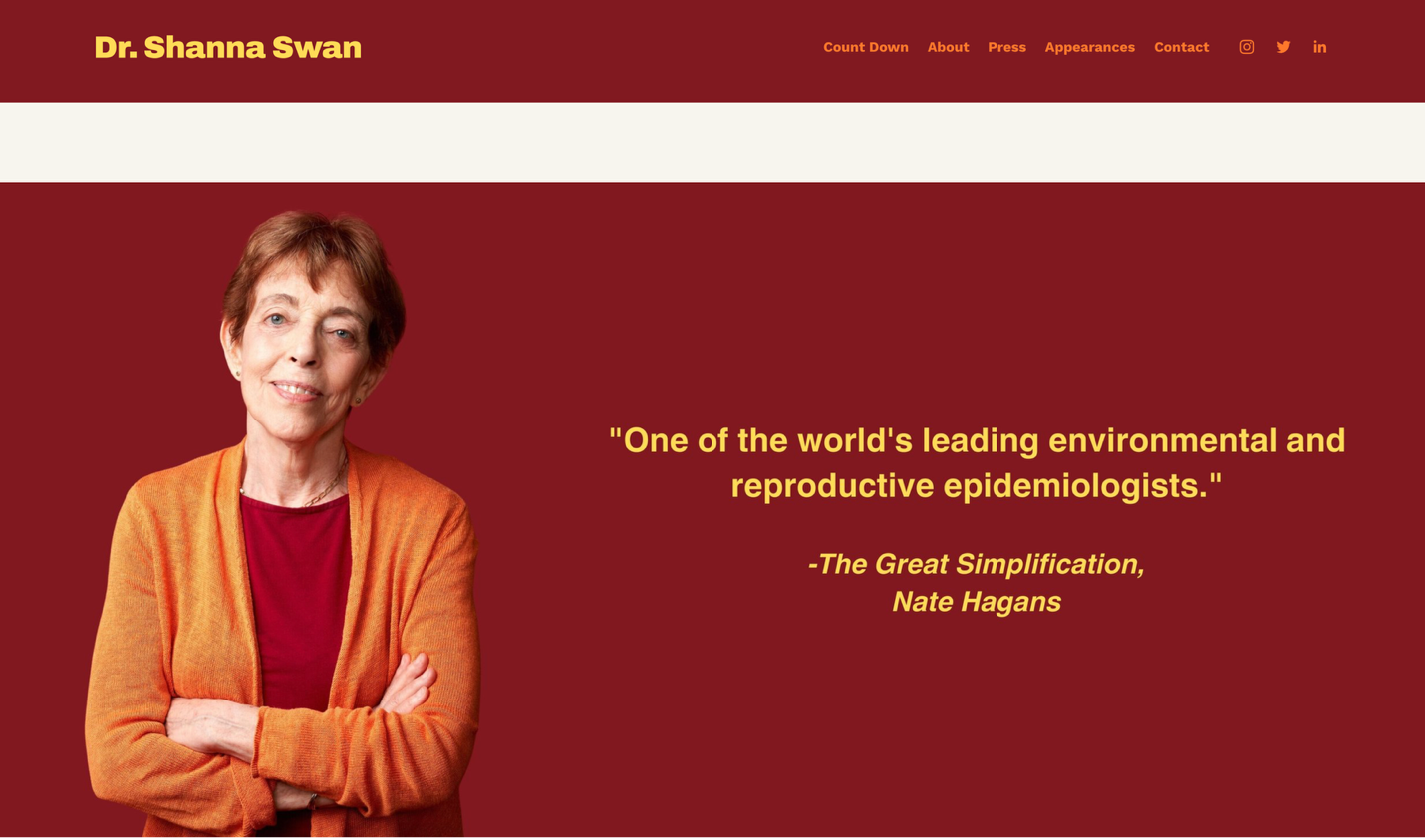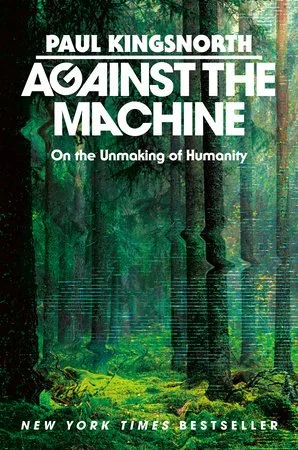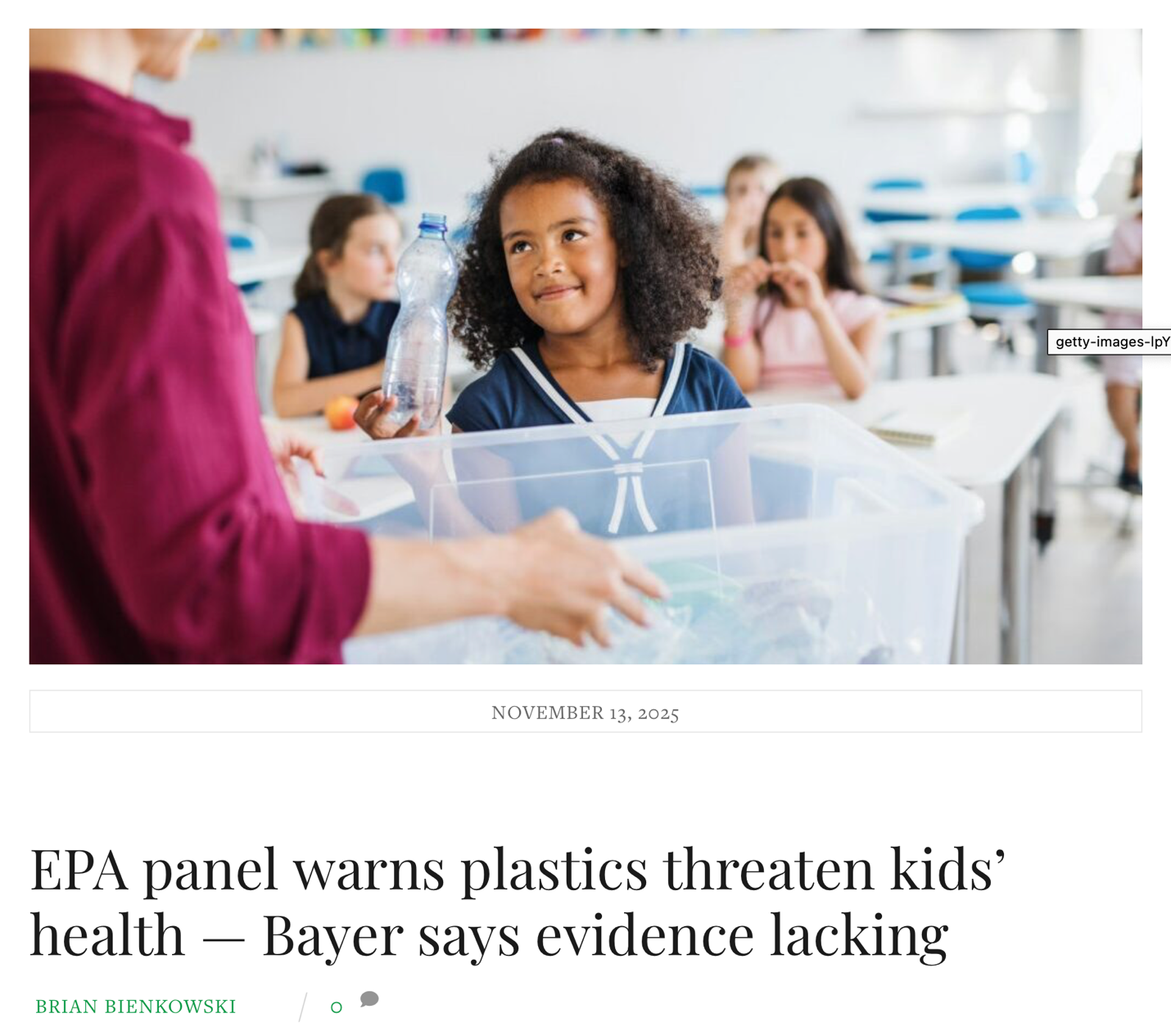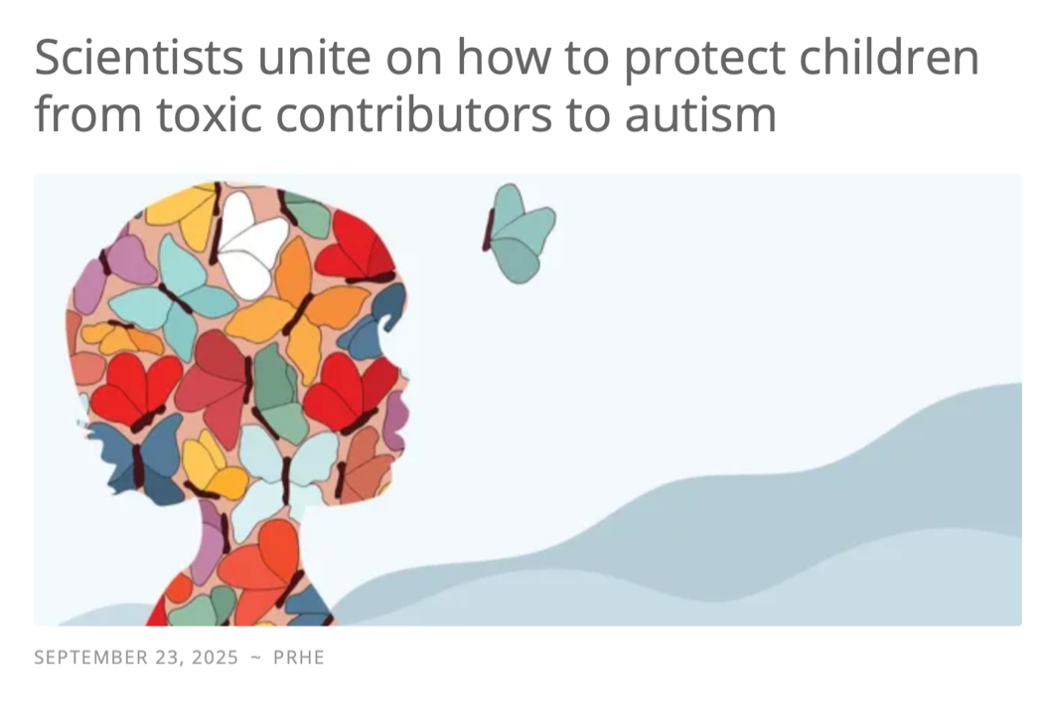 According to Josh Fox’s Gasland, there are more than 596 chemicals, including some known carcinogens and many unidentified or untested chemicals, used in fracking. One to seven million gallons of water are used each time a well is fracked. There are 450,000 wells, so this works out to be 40 trillion gallons of water (2010). I was shocked at how ruined the landscape looked where fracking wells had been drilled. And while I was aware how many chemicals were injected into the ground, and that they were dangerous and often kept secret, I was shocked at how many people were made very ill with brain tumors, asthma, migraines, peripheral neuropathy – outright holes in their brains – from the fumes from the wells, unregulated, unsupervised, beyond the law and even commonsense restrictions. All this, while officials claimed there were no credible claims of contamination, much less health effects. Notably, every official asked refused to drink samples of water from affected people's wells. If, after watching this film, available on Netflix, you are also appalled at the horrors of fracking, you can help online activists oppose the worst abuses in Illinois at http://petitions.moveon.org/sign/support-the-green-dozen.fb69?source=s.icn.fb&r_by=5675249
According to Josh Fox’s Gasland, there are more than 596 chemicals, including some known carcinogens and many unidentified or untested chemicals, used in fracking. One to seven million gallons of water are used each time a well is fracked. There are 450,000 wells, so this works out to be 40 trillion gallons of water (2010). I was shocked at how ruined the landscape looked where fracking wells had been drilled. And while I was aware how many chemicals were injected into the ground, and that they were dangerous and often kept secret, I was shocked at how many people were made very ill with brain tumors, asthma, migraines, peripheral neuropathy – outright holes in their brains – from the fumes from the wells, unregulated, unsupervised, beyond the law and even commonsense restrictions. All this, while officials claimed there were no credible claims of contamination, much less health effects. Notably, every official asked refused to drink samples of water from affected people's wells. If, after watching this film, available on Netflix, you are also appalled at the horrors of fracking, you can help online activists oppose the worst abuses in Illinois at http://petitions.moveon.org/sign/support-the-green-dozen.fb69?source=s.icn.fb&r_by=5675249
I was not surprised, however that there was a disconnect between what science is telling us and what corporations and politicians are doing. In fact, that now seems the norm, which is so discouraging to scientists who have dedicated their lives to pursuing important and useful truths. Consider climate change: the science is absolutely conclusive, yet few politicians are willing even to admit this inconvenient truth because they are afraid of offending corporations financing their campaigns and because the people who elected them are not yet willing to hear it. President Obama’s recent move to regulate carbon emissions are the exception, and though it may be too little, too late, it took considerable political courage to take even this minimum, obvious step. If you’re curious about his stance on climate change, you can find a quite reasoned, frank expression of it at http://www.environmental-action.org/blog/obama-said-what On the issue of environmental chemicals, too, there is a huge disconnect between the conclusions drawn by scientists and the actions of regulators and politicians. I’ve described this thoroughly elsewhere on this blog. At the same time the President’s Cancer Panel is assigning huge excesses of cancer to environmental causes and the highly credible American Academy of Pediatrics is stating in no uncertain terms that environmental chemicals like pesticides are causing higher rates of cancer, autism, and asthma in children, some politicians are working to weaken even the incredibly toothless regulations we have now rather than reforming them to better protect children – and the rest of Americans. If you look at almost any environmental issue, not only are we far behind the rest of the developed world; our anti-intellectual politicians are systematically ignoring scientists, kowtowing to corporations, and poisoning the constituents who elected them. The entire system is broken, and most politicians are operating in bad faith.
Likewise, I was not surprised to see how the EPA was exposed in this movie: disappointed, but not surprised. The EPA is not protecting us on a number of issues. The agency was terribly dismissed, contradicted, and gutted during the Bush administration, and has not really made significant progress protecting Americans since the 1970s. I think it must be very unpleasant to be an EPA scientist – I have communicated with some of them for my book and blog, and I don’t think they are bad people so much as bogged down in Catch-22s. They are legally bound, for instance, to only look at animal studies, not the much more compelling and accurate epidemiological studies, in reviewing pesticide registration. EPA determinations about climate change were unethically edited by politicians under George Bush. Elizabeth Kolbert is excellent on this subject (2006). EPA scientists are understaffed, immersed in a cumbersome bureaucracy, and mostly out of touch. It’s a hazard of such bureaucracy that one works very hard doing a good job at something that is not worth doing. That’s the converse of the saying that anything worth doing is worth doing well; anything not worth doing shouldn’t be done at all. I have dealt with cumbersome bureaucracies myself, but take my word for it: there is something about losing a child to a horrible injustice that sharpens your perceptive abilities quite quickly. It shouldn't take so much, however. Everyone should admire the whistleblower featured in the film, Weston Wilson, not only for his courage, but for his incisive intellectual ability, the ability to discern what is really occurring and what really needs to happen. So few people question the why and wherefore. He says the following of the special exemption to the clean air and water act in 2005: “Dick Cheney was CEO of Halliburton. He formed the industry task force – they only met once and formed the Energy Policy of 2005 – it allows injection of known hazardous chemicals right adjacent to drinking water. All science stopped. We were appalled at burying this secret, one that was known to us. When the President says to the bureaucracy ‘do not investigate, expedite it for the industry,’ we can do that well too. This entire industry purchases those they contaminate with an agreement of secrecy. This is America. We should assume that industries will keep secrets. Don’t assume that since Obama got elected, something has changed at the EPA so far. Even if the allegations were not true, they [those affected] are citizens of the U.S., and they certainly should not be exposed to secret chemicals. I understand your frustration, and maybe it’s a pattern repeating itself. But so far, we’re not on duty. We’re not present as a government agency to answer your legitimate questions” (2010, emphasis added). This is harsh criticism indeed, but it’s consistent with everything I know to date about the EPA. They are deluded about how well they are doing. The EPA needs to stop and sharpen the saw: assess the abysmal state of our nation’s health and environment and launch new and effective protection programs. Perhaps that is what will now occur with climate change. I hope so. I should express a caveat, too, that non-profit environmental organizations like Green Peace, NRDC, EWG, EDF, Beyond Pesticides, and Midwest Pesticide Action Network are acting, for the most part, completely differently, but only because they are not under the thumbs of corrupt politicians. Those organizations are funded by the people, and they tend to act in the interest of the people. It’s atrocious that the same cannot be said for our own government, which we also fund.
Much of the drilling in the movie occurs on public land. It is a national shame that The Bureau of Land Management (BLM) now works so much in contrariety to its stated goal "to sustain the health, diversity and productivity of the public lands for the use and enjoyment of present and future generations." Of course gas drilling does not cooperate with its mandate or practice sustainability. But I must say, knowing for a long time that our national lands were being exploited for fossil fuels, I still did not feel it so strongly as now, having seen it. Why do these individuals get to rape our national lands for profit? Because we let them. We do not boot out the politicians who change laws in favor of corporate interests because those corporations donate unbelievable amounts of money to them. Human health is integrally tied to the health of our political system, which is in absolute tatters, particularly since the recent Supreme Court Decision on Citizens United and McCutcheon, which have allowed unfettered purchase of our political process by corporations, who are now classified as individuals exercising free speech. As many others before me have said, I will believe these corporations are persons when some of them (perhaps all the people involved in decision-making) go to jail for manslaughter for the deaths they have caused by polluting. As one man said in the movie, a man whose well blew up, natural gas exploding out for three days, right into the atmosphere, and who had to get a judge’s injunction to get the well capped with cement, and for whom the County now fills up two cisterns, “If nothing is wrong, why are they bringing it [the water]?” He hired a hydrogeologist who said that with the fracking, they intermingle everything under the earth, including oil deposits. “The water that comes out is only good for brain altering activities – like turpentine. It’s criminal. What if I took it to the big boss and dumped it in his well? But they can do what they want to. There’s no democracy. I have never seen such lying. Around here, if your word is no good, then you are no good, and for what? For money.” This crusty, perspicacious old rancher speaks words of wisdom, and Josh Fox’s documentary is golden if only because it gives voice to individual Americans whose lives and health have been ruined in the name of cheaper gas for us all. The man takes a blowtorch to his water and creates plastic right on film, a better way to test, perhaps, for the glycol ethers that contaminate it.
We are absolutely not safe from fracking in Illinois, which only recently arrived in the state. Just last year, the State passed regulations that are supposed to limit damage, but it is very unlikely they will significantly help. I am from downstate, Fulton County, which still lies ravaged from the previous run on fossil fuels – strip mining. The damage done to the land is permanent. Though I grew up only marginally aware of the fact that those long thin lakes were not natural to the prairie, I clearly remember the smokestacks, the open, ruined land, and the high rates of cancer in my town.
I beg everyone who reads this to join in with the unfunded, overworked Quixotic activists who are trying their best, against the richest corporations and most corrupt politicians in the U.S., to lessen the damage done now to our health and the health of all future generations. They do it for the same reasons you should – because no one else is working to protect you or your children. It just takes a minute at http://petitions.moveon.org/sign/support-the-green-dozen.fb69?source=s.icn.fb&r_by=5675249
At one point in the movie, Fox says, “I had tried to keep anger and sorrow at bay….” He accomplishes this by doing something – a significant something, if you ask me, to make things better. Even so, the harsh realities he experiences were sometimes overwhelming. This is a movie that should shock, that should make us angry and sorrowful. But it’s essential not to stay there, but to pick ourselves up, and set out to change things. If we do not, I can assure you, no one else will.
References
Fox, J. (Producer), Winger, D. (Producer), Gray, H. (Producer). (2010). Gasland. [Motion picture]. U.S.: Independent. (Available from Netflix).
Kolbert, E. (2006). Field notes from a catastrophe: Man, nature, and climate change. New York: Bloomsbury.
President’s Cancer Panel (PCP). (2010). Reducing environmental cancer risk: What we can do now. U.S. Department of Health and Human Services. Retrieved from http://deainfo.nci.nih.gov/advisory/pcp/annualReports/pcp08-09rpt/PCP_Report_08-09_508.pdf
Roberts, J.R., Karr, C.J. (2012). Pesticide exposure in children. American Academy of Pediatrics 130 (6): e1765-e1788.












